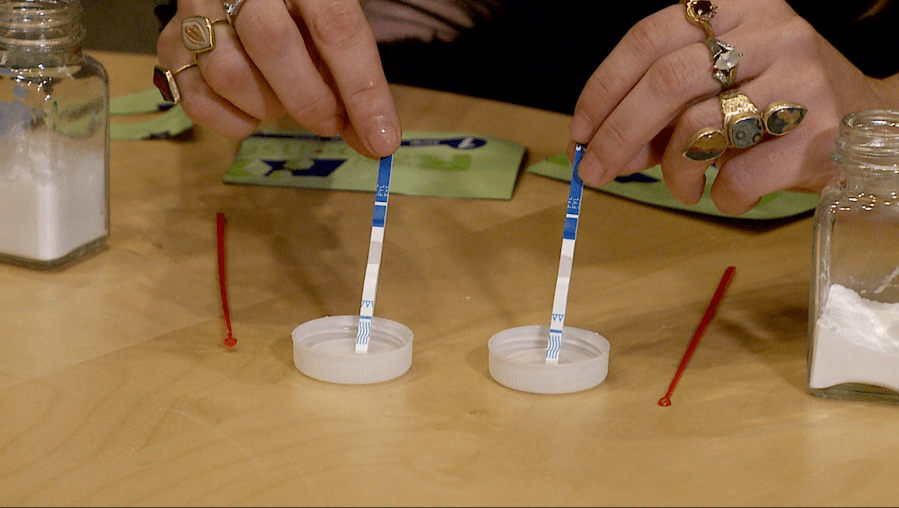DENVER (KDVR) — The death of five adults in a Commerce City apartment is shining a new light on the fentanyl crisis in Colorado. According to authorities, their sudden deaths are likely because of an unintentional overdose.
No street drug is safe, but one organization is urging people to protect themselves by testing their own substance.
A tiny amount of fentanyl can be lethal. It has been discovered in heroin, meth, cocaine, even marijuana. People across the country, including Colorado, are dying from fentanyl poisoning because they don’t know what they’re consuming is laced with it.
DanceSafe, a non-profit harm reduction organization promoting health and safety, offers a way to protect those who choose to partake. Jessica Breemen. an executive with the organization, is urging people to test before they consume any drug.
“People should know what they’re putting in their bodies,” Breemen told FOX31.
However, the reality is that many don’t know, which can lead to unintentional overdose and in some cases death. DanceSafe offers fentanyl test strips to the public that detect the presence of the opioid, not its potency or purity. The organization sells the strips for $2.09 for one, a pack for roughly $20, and more. They can be purchased by clicking this link. Aside from the strips, everything else needed can be found at home.
“It’s important to keep people safe, to eliminate risks, to keep people alive,” Breeman said.
How to use fentanyl test strips
Breeman sat down with FOX31 on Tuesday and demonstrated how the strip works using powdered sugar and Benadryl, which posed as cocaine. One cup with powdered sugar and the other was powdered sugar mixed with Benadryl, which Breemen says causes the strip to react similarly to fentanyl.
“We’re going test as if we have cocaine,” Breeman explained. “So, the dilution ratio is going to be 50 milligrams per teaspoon.”

Breeman pulled out a measuring spoon and poured a teaspoon of water into two bottle caps, like milk caps. She put a specific amount of the two “drug” mixes (powdered sugar) in each and stirred them both. Then she set one strip in each solution and let it sit for about two minutes. The solution climbed up the strip and it was then put on a flat surface with the results.
One red line means fentanyl is present. Two red lines mean it is not present.
The Benadryl and powdered sugar mix showed one line, while just the powdered sugar showed two lines.
It is important to note that the strips are not 100% accurate. Breemen said sometimes they give false positive and false negative results.
“It’s not a perfect science, but if you follow the directions as much as you can, you’re going to eliminate the risk of having a false positive or false negative,” Breemen said.
Harm can be reduced, but the problem persists
Although the fentanyl test strips are a step toward protection, the real issue persists.
“Virtually everything we’re seeing on the streets right now is fentanyl,” said Steve Carleton, with Gallus Detox.
Gallus Detox offers medical detox for drug and alcohol addiction in Littleton, Scottsdale and Las Vegas. Carleton said their centers help people fight and recover from addiction each day, but it’s a tough battle.
“People end up avoiding getting help, especially with opiates, because the withdrawals are so painful and uncomfortable and there’s so much fear around the detox process,” Carleton explained.
He said their programs are a step in the right direction and that loved ones should get involved in a supportive way.
“Approaching your family members with care and compassion is the most important thing.” Carleton told FOX31.
He also says help begins with a conversation and is urging people to pick-up the phone and explore the option. If you or a loved one needs help, call Gallus Detox at 888-306-3122 or Colorado Crisis Services at 844-493-TALK (or 8255).
